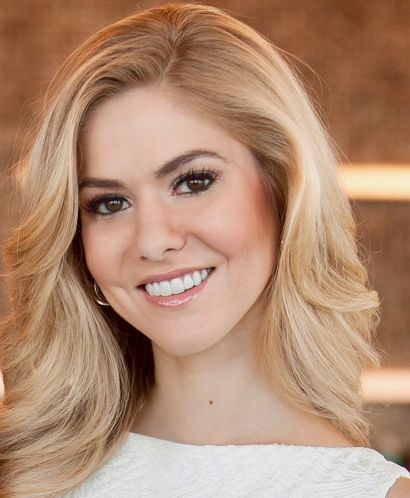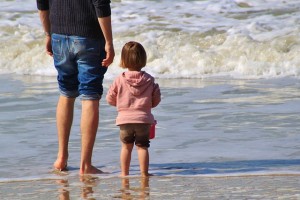- Calls to this hotline are currently being directed to Within Health, Fay or Eating Disorder Solutions
- Representatives are standing by 24/7 to help answer your questions
- All calls are confidential and HIPAA compliant
- There is no obligation or cost to call
- Eating Disorder Hope does not receive any commissions or fees dependent upon which provider you select
- Additional treatment providers are located on our directory or samhsa.gov
My Eating Disorder Recovery & Founding the Kirsten Haglund Foundation – Part 1

My Eating Disorder Recovery & Founding the Kirsten Haglund Foundation – Part I
I started to share my story for the first time in 2008 during my year as Miss America.
It’s funny because I want to start out by acknowledging the paradox there and some of the objections.
So many people look at me and say “Well, how can you, as Miss America, be out there talking about eating disorders?”
I want to acknowledge that first and foremost because I find it paradoxical as well and, in fact, I never planned for that to be my life.
I entered a competition when I was 17 years old graduating from high school after I completed my two years of intensive eating disorder therapy. I had just decided to enter this local pageant on a whim because I wanted some college scholarship.
I’d performed on stages all my life as a ballet dancer and someone involved in the performing arts so performing on the stage was no big deal to me. I never thought I would actually win but I did, and then I had to go to the next level and compete at Miss Michigan at age 18 and also won which was completely unexpected.
I then found myself as Miss America six months later standing on that stage at 19 years old and, again, completely unexpectedly winning that as well.
All of that to say I found myself in this very public position very quickly and, from the very beginning, not even sure that I wanted it, wanted to do it or felt very comfortable in that role.
During my time as Miss America, you get to travel all around the country from city-to-city, living out of suitcases, every day in another city and you get this incredible opportunity to talk about an issue.
Every girl chooses a platform to talk about an issue that you care about, advocate for it, be an activist, travel around the country on a speaking tour, and I thought about my eating disorder experience.
An eating disorder had touched my life, my family, my community so deeply, and I found myself with the opportunity to speak to young girls and women who are the target audience for who needs to hear the message.
I was able to speak about positive body image and being perfectly imperfect and that it’s okay to be vulnerable and to share what’s on your heart and the challenges you faced in your life and to offer people a story of hope.
I had an opportunity to talk to the most vulnerable audience and, so, I really tried to embrace what I’d been given in that year and chose, as my platform, to raise awareness of eating disorders.
That’s when I first started to share my story, and I made sure that I shared it in a responsible way, that was always really important to me.
I had a lot of mentors coming into the eating disorder world such as Kathleen McDonald who works very closely with the Eating Disorders Coalition. She was an incredible role model of faith to me.
Also, Jenny Schaeffer really made sure, when I started to share my story, that I did so responsibly.
That’s how this whole journey started for me, and that was about ten years ago now, which is crazy to think about, I feel so honored to have been able to do this for the last ten years!
I’ll walk through some of the most basic parts of my journey, and my turning point and what recovery looks like for me and where I am now.

So, I first started struggling with eating disorder behaviors at around 12-years-old.
NEDA, the National Eating Disorders Association, has a really great saying that “genetics load the gun and environment pulls the trigger.”
So, I didn’t just start disordered eating behaviors at 12-years-old, we have a history of some mental health issues in my family and, growing up, I had a very Type-A, perfectionistic, high achiever personality. I was also very self-critical and a people pleaser.
From a very young age, a lot of my sense of self-worth was based on what other people thought of me and whether or not I was achieving and accomplishing as I thought I should be.
It was important to me to be the best at school, in dance, really in every environment in which I was engaged.
I began dancing at a very young age and was involved in the ballet world from very early on, and I loved it, of course.
Music and dance were my very first loves in life, and I felt so alive dancing. It quickly became my life’s passion, and that was the goal of my career: I wanted to be a professional ballerina.
I got on track to do that. At 9 or 10 years old, I started going to an all ballet school training very intensively every single day.
Then, at 12, I went away for my first summer to study at an eight-week ballet program.
Also that summer, my mother was diagnosed with breast cancer and our formerly very happy, normal, life and family began to become very chaotic and uncertain.
My mother’s health and her future were very uncertain, and then I went off to this ballet program, and I went from being a big fish in a small pond, being the best of my ballet studio in Michigan, to being in the big leagues.
I came face-to-face with girls who were very good and intensely training, and I got scared that I wasn’t going to be able to be a professional dancer, that maybe my skill level wasn’t there.
I began doubting of myself and then, of course, you put in conjunction with everything that is going on in a 12-year-old body, and you’re coming into puberty and adolescence. All of the hormones are all meeting, and all of these things just create a perfect storm of factors.
In the midst of all of the chaos and the self-doubt and the plummeting self-esteem (because I’m compared to other girls with their talent but also their body shape and size) I had to find a way to cope, and I had to find a way to focus and keep myself sane.

I turned to a diet, and that was all it was at first. It was just “well, maybe I can lose five pounds off my thighs, because I hated my legs. I would go into the studio in a leotard and tights every day, and I just absolutely hated my legs. So, I thought, “if I can lose five pounds off my legs then I’ll be happy.”
But, as many of us who have struggled with an eating disorder know, it never is enough.
You lose that first little bit, you feel good, and you get so much positive reinforcement that you just keep going, and that’s exactly what happened to me.
I just kept cycling downward further and further into restriction and over-exercise.
Source:
Virtual Presentation by Kirsten Haglund in the Dec. 7, 2017 Eating Disorder Hope Inaugural Online Conference & link to the press release at https://www.prnewswire.com/news-releases/eating-disorder-hope-offers-inaugural-online-conference-300550890.html
 About the Presenter:
About the Presenter:
Kirsten Haglund served as Miss America in 2008 and now is proud to be the Community Relations Specialist for Timberline Knolls Residential Treatment Center and an “Ambassador” for the National Eating Disorders Association (NEDA). As a television personality and commentator, Kirsten appears frequently on Fox News Channel, HLN, Fox Business Network, and Huff Post Live to comment on women’s health issues, celebrity culture, social issues, women’s empowerment and the millennial generation.
 About the Transcript Editor: Margot Rittenhouse is a therapist who is passionate about providing mental health support to all in need and has worked with clients with substance abuse issues, eating disorders, domestic violence victims, and offenders, and severely mentally ill youth.
About the Transcript Editor: Margot Rittenhouse is a therapist who is passionate about providing mental health support to all in need and has worked with clients with substance abuse issues, eating disorders, domestic violence victims, and offenders, and severely mentally ill youth.
As a freelance writer for Eating Disorder and Addiction Hope and a mentor with MentorConnect, Margot is a passionate eating disorder advocate, committed to de-stigmatizing these illnesses while showing support for those struggling through mentoring, writing, and volunteering. Margot has a Master’s of Science in Clinical Mental Health Counseling from Johns Hopkins University.
The opinions and views of our guest contributors are shared to provide a broad perspective of eating disorders. These are not necessarily the views of Eating Disorder Hope, but an effort to offer a discussion of various issues by different concerned individuals.
We at Eating Disorder Hope understand that eating disorders result from a combination of environmental and genetic factors. If you or a loved one are suffering from an eating disorder, please know that there is hope for you, and seek immediate professional help.
Published on June 21, 2018.
Reviewed on June 26, 2018 by Jacquelyn Ekern, MS, LPC.
Published on EatingDisorderHope.com

The EatingDisorderHope.com editorial team comprises experienced writers, editors, and medical reviewers specializing in eating disorders, treatment, and mental and behavioral health.

